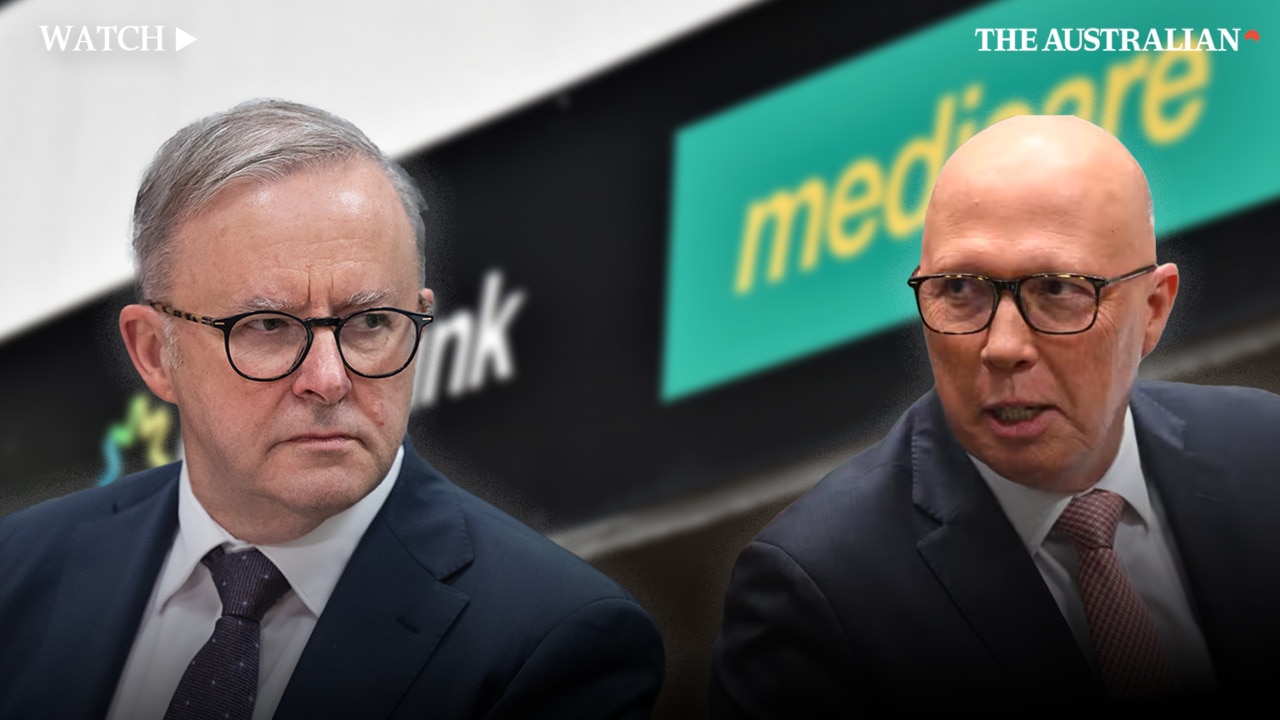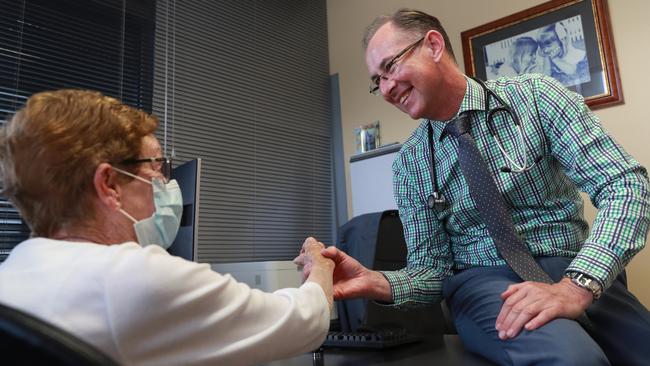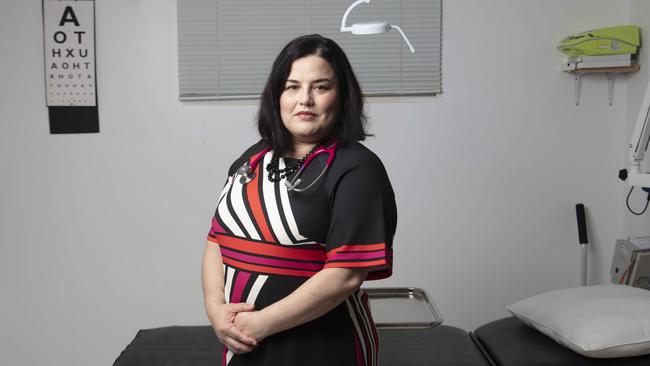High out-of-pocket costs to remain for many patients as GPs cast doubt on Medicare reforms
Labor’s massive injection into Medicare is being treated with scepticism by many doctors who say the economics of bulk billing still do not add up.

Frontline doctors have greeted Labor’s blockbuster Medicare announcement with scepticism and say the economics of the bulk-billing incentive will not work for their practices.
The Albanese government has based its health pitch on an extension of the triple bulk-billing incentive to all patients, and a 12.5 per cent further uplift to practices who bulk bill all patients. It expects as a result of the policy that nine out of 10 GP consultations will be bulk billed within a decade.
The Medicare rebate, however, which lags enormously behind the cost of providing healthcare, remains the same, albeit indexed yearly. That means patients who doctors choose not to bulk bill will reap no benefit from Labor’s policy and will face the same, or ever-higher, gap fees.
Doctors are prevented by law from charging any fees if a consultation is bulk-billed.
A host of GPs consulted on the policy by The Australian said that while they welcomed any moves to increase bulk-billing rates, they would struggle to keep their practices afloat without privately billing patients other than pensioners and children.
The doctors included those working in some of the most disadvantaged zones of Australia.
“Utilising this bulk-billing incentive for the majority of my patients would be something I could not contemplate doing, unfortunately,” said Ken McCroary, a GP in Campbelltown in western Sydney, which has high rates of disadvantage and very high rates of chronic disease.

“The numbers don’t add up. I need the rebates to match what it costs to run the practice.
“The doctors in my practice see an average of two patients an hour because the healthcare required is so complex.
“I would have to see 10 patients an hour on the new rate with the bulk-billing incentive to get the same amount of income to cover costs. We can’t do that.
“The stupid thing is this is prioritising, once again, fast throughput, poor medicine.”
The Medicare rebate for a consultation lasting less than 20 minutes is now $42.85. If a GP uses the expanded bulk-billing incentive, it will bring the payment up to between $62.56 and $86.91 depending on remoteness. For long consultations the uplift will be 38 per cent in the metro regions, up to 59 per cent in the nation’s most remote areas, and for consults over 40 minutes the increase will be between 30 per cent and 44 per cent.
But for short consultations for average GPs in metro regions, there will still be an average $20 difference between the rebate plus bulk-billing incentive, and the income received by privately billing, with out-of-pocket costs at an average now of $46 nationwide.
The gap between the rebate plus private fee income and the rebate plus bulk-billing incentive will be substantially higher than that for longer consultations.
“I definitely welcome any investment into general practice, but I think this policy is going to cause a lot of confusion,” said Maria Boulton, a GP in Brisbane and former AMA Queensland president.
“People in the community may think that it’s a rebate that’s tripling and may not understand that it’s actually the bulk-bill incentive, which only applies if you’re a bulk billed.
“Given that even with a tripling of the bulk-billing incentive, the rebate to the patient is not, it’s not going to be enough to cover the costs of seeing a doctor in some practices.

“We would have liked to have seen a remodelling of the Medicare rebates so that patients who need those longer appointments with their doctor benefit from a higher rebate, because at the moment, when you look at the rebate for patients, it’s greater if you have a short consult, and much lower if you have a longer consult.
“With people ageing, and given that most people with mental health issues present to their GP first, these people deserve time.
“I feel this policy has not landed where it should have landed. It will help us, hopefully, to maintain bulk billing those who we already bulk bill. But it may not extend beyond that, depending on the costs of running the practices.”
Specialist rural generalist doctor Michael Livingston, who practises in remote Western Australia said he welcomed the opportunity to improve universality in healthcare nationwide, but the reality was many doctors would be taking a pay cut if they use the bulk-billing incentive widely.
“I understand what the intention behind the policy is, but I don’t know why they just didn’t do the most logical thing, which is improve the rebate itself,” Dr Livingstone said.
“The other thing is that the incentive is not protected. What happens in a year? What happens if the Liberals are elected, are they going to keep it?
“It just feels like we’re hanging on a wing and a prayer.”
The National Rural Health Alliance, which broadly welcomed the Medicare funding injection, nevertheless held concerns that the rebates will not benefit many patients outside of cities.
“The rebates increase will benefit those living in urban and outer urban areas, especially at a time when they are struggling to pay their bills,” NRHA chief executive Susi Tegen said.
“NRHA, however, continues to be deeply concerned by the ongoing challenges faced by rural and remote GP or primary care practices that cannot afford to bulk bill services for communities.
“The high operational cost of quality healthcare services, and longer and more complex consults due to the comorbidity of rural Australians, result in many rural health services making a loss while trying to meet community needs.
“Many rural practices are already experiencing a thin or failed market, making it difficult to cover costs.
“The newly announced government measures will do little to change that reality.
“The success of these incentives hinges on having a local workforce and leveraging the economies of scale that urban practices enjoy.
“Many communities face severe shortages of doctors, nurses, dentists and allied health professionals. A multi-pronged approach will ensure equitable access to Medicare.”




To join the conversation, please log in. Don't have an account? Register
Join the conversation, you are commenting as Logout